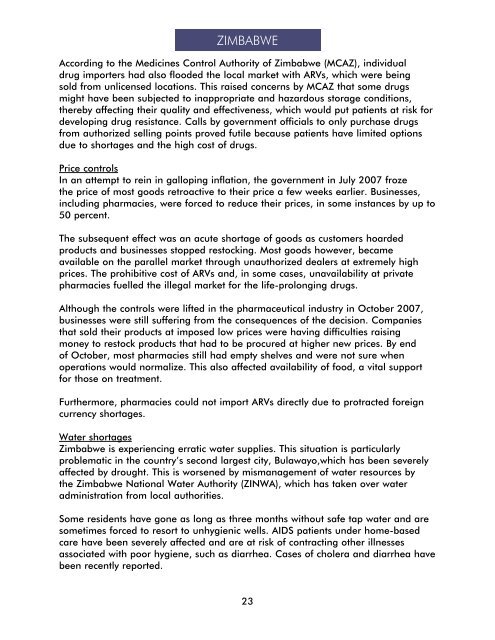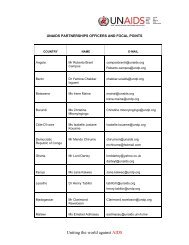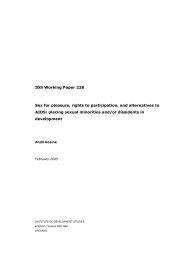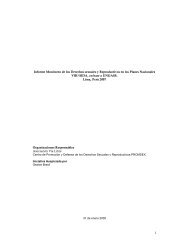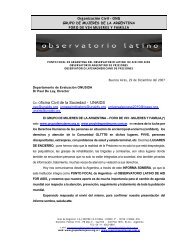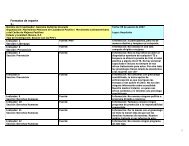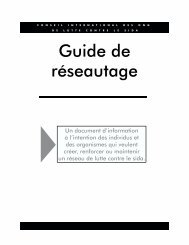Missing the Target #5: Improving AIDS Drug Access ... - CD8 T cells
Missing the Target #5: Improving AIDS Drug Access ... - CD8 T cells
Missing the Target #5: Improving AIDS Drug Access ... - CD8 T cells
Create successful ePaper yourself
Turn your PDF publications into a flip-book with our unique Google optimized e-Paper software.
ZIMBABWEAccording to <strong>the</strong> Medicines Control Authority of Zimbabwe (MCAZ), individualdrug importers had also flooded <strong>the</strong> local market with ARVs, which were beingsold from unlicensed locations. This raised concerns by MCAZ that some drugsmight have been subjected to inappropriate and hazardous storage conditions,<strong>the</strong>reby affecting <strong>the</strong>ir quality and effectiveness, which would put patients at risk fordeveloping drug resistance. Calls by government officials to only purchase drugsfrom authorized selling points proved futile because patients have limited optionsdue to shortages and <strong>the</strong> high cost of drugs.Price controlsIn an attempt to rein in galloping inflation, <strong>the</strong> government in July 2007 froze<strong>the</strong> price of most goods retroactive to <strong>the</strong>ir price a few weeks earlier. Businesses,including pharmacies, were forced to reduce <strong>the</strong>ir prices, in some instances by up to50 percent.The subsequent effect was an acute shortage of goods as customers hoardedproducts and businesses stopped restocking. Most goods however, becameavailable on <strong>the</strong> parallel market through unauthorized dealers at extremely highprices. The prohibitive cost of ARVs and, in some cases, unavailability at privatepharmacies fuelled <strong>the</strong> illegal market for <strong>the</strong> life-prolonging drugs.Although <strong>the</strong> controls were lifted in <strong>the</strong> pharmaceutical industry in October 2007,businesses were still suffering from <strong>the</strong> consequences of <strong>the</strong> decision. Companiesthat sold <strong>the</strong>ir products at imposed low prices were having difficulties raisingmoney to restock products that had to be procured at higher new prices. By endof October, most pharmacies still had empty shelves and were not sure whenoperations would normalize. This also affected availability of food, a vital supportfor those on treatment.Fur<strong>the</strong>rmore, pharmacies could not import ARVs directly due to protracted foreigncurrency shortages.Water shortagesZimbabwe is experiencing erratic water supplies. This situation is particularlyproblematic in <strong>the</strong> country’s second largest city, Bulawayo,which has been severelyaffected by drought. This is worsened by mismanagement of water resources by<strong>the</strong> Zimbabwe National Water Authority (ZINWA), which has taken over wateradministration from local authorities.Some residents have gone as long as three months without safe tap water and aresometimes forced to resort to unhygienic wells. <strong>AIDS</strong> patients under home-basedcare have been severely affected and are at risk of contracting o<strong>the</strong>r illnessesassociated with poor hygiene, such as diarrhea. Cases of cholera and diarrhea havebeen recently reported.23


